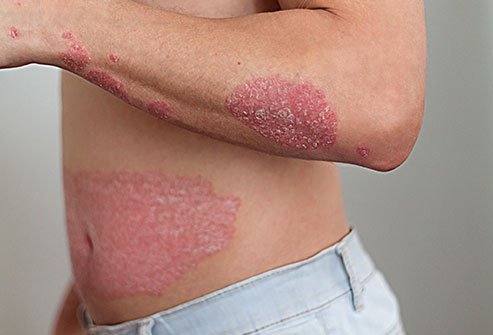How Can I Boost My Immune System to Fight Psoriasis?

Psoriasis is an autoimmune disease caused by an overactive and dysfunctional immune system. Living with psoriasis not only causes red, itchy, painful skin, but it can also make you more susceptible to other health problems as well, since the inflammation that triggers your skin symptoms can cause inflammation in other parts of your body. You may be at higher risk of:
- Weak joints
- Diabetes
- Liver disease
- Parkinson disease
- Respiratory problems
- Celiac disease
So how does psoriasis affect your immune system, and what can you do to fine-tune your immunity so that it works properly?
How does psoriasis weaken your immune system?
Psoriasis develops when your immune system is overactive.
Your body produces an excess of inflammatory agents called cytokines, which normally help the body fight infections and heal injuries. But instead of fighting off unhealthy cells, these cytokines attack healthy cells. Your white blood cells are kept in a hyperactive state and your body in a pro-inflammatory condition, making you more susceptible to common colds and flu.
Additionally, the steroids used to control your flares directly can weaken your immunity by reducing white cell function.
6 ways to boost your immune system to fight psoriasis
- Get enough vitamin D: People with psoriasis often have a vitamin D deficiency. You can get vitamin D from foods such as mushrooms, dairy, and fish, as well as exposure to sunlight.
- Include antioxidants in your diet: Studies have found a link between insufficient antioxidant activity and psoriasis. Selenium, vitamin C, and vitamin E are powerful antioxidants that you can try including in your diet through nuts, seeds, germinated microgreens or sprouts, and fresh fruits.
- Avoid gluten: Gluten allergies lead to the formation of antigens in the body that can activate the immune system and therefore cause psoriasis. A gluten-free diet may make a noticeable difference in psoriasis symptoms.
- Limit alcohol: Studies have shown a link between psoriasis flare-ups and beer, as well as the link between alcohol consumption and inflammatory responses in the body that can increase risk of infection.
- Eat fatty fish: Fish rich in omega-3 fatty acids have anti-inflammatory properties that can help reduce the amount of inflammation in your body. Fatty fish include cod, sardines, salmon, trout, etc.
- Exercise regularly: Regular exercise can improve blood circulation and has a positive impact on your immune system. However, since sweat can cause flare-ups, you can try workouts that make you sweat less, such as swimming, water aerobics, yoga, and walking.
Before mapping out a diet plan or taking supplements for psoriasis, always consult with your physician. They can help you identify ways to help your immune system and relieve symptoms.

